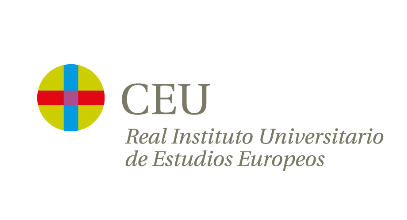– Joshua Alexander Anderson –
Language used to address natural human geography in and out of Europe in Latin languages amongst the South of Europe mirrors that found in the English. Most commonly, the word “crisis” is associated with immigration, however, when reframing the phenomenon upon a larger historical and international political axis, the legitimization of modern boarders comes into question under the steady influx of immigration.
The term “crisis” suggests a temporal period of extraordinary danger or calamity; immigration between the Mediterranean Sea has occurred for a millennia, with the movement of diasporas between the continents leading to the development of Europe’s many diverse identities. A reformation of the contemporary language used to refer to immigration should reflect the values found in The Charter of Fundamental Rights for the Union European, in addition to correctly framing the naturality of human geography.
A reformation of the contemporary language used to refer to immigration should reflect the values found in The Charter of Fundamental Rights for the Union European, in addition to correctly framing the naturality of human geography.
Movement between the continents surrounding the Mediterranean Sea has resulted in the complex identities of their inhabitants, the sea has functioned as a bridge, instead of a natural divider. The massive immigrations recorded in recent historical memory are profoundly tied to Europe’s colonial history as well as to migration. Since the 1960s, high trends of Tunisians have migrated seasonally or long term to Sicily, Lampedusa and southern regions of Italy, on the basis of acquiring economic opportunities. Between 1876 and 1976, one of the largest exodus events in modern history occurred and the Italian diaspora poured out of the nation shortly after Unification, this led to the increase of the Italian population in the colonial settlements around the Mediterranean corridor (Lombardi-Diop and Romeo). Furthermore, migrations by the thousands particularly from Sicily to Tunisia occurred before and during the period of Frances Protectorate, established in 1881 (Gilioli). At the turn of the 19th century Spain established a protectorate in Morocco (including the Western Sahara) expanding more than 40 years from 1912 to 1956 (Diaz-Andreu). During this protectorate Spanish military troops were sent to Morocco to protect economic interests. With the formation of the protectorate, a surge of Spanish citizens entered Morocco in exile and by other means (Lundsteen). Similar migratory trends occurred in France’s protectorate in Tunisia, leading to the spread of French to North Africa. Diasporic movements in the Mediterranean under the guise of colonization, refuge, or economic opportunity are far from crisis but natural phenomenon. As this is the case, language used concerning immigration in academia and media should reflect the naturality of the event and the values of the EU. The incorrect labeling of such an event results in a befouled perception of the situation at large, being individuals escaping countries of intense military conflict, escaping life threatening circumstances because of religious, gender, or ethnic persecution (asylum seekers or refugees), and financial opportunities.
The Charter of Fundamental Rights for the European Union encapsulates the values of the European Union, it guarantees certain protections in the recognition of inalienable human rights. In the implementation of the Charter’s values of human dignity, freedom, democracy, equality, citizens’ rights, and Justice are the exemplary manifestations of the EU as a crucial actor on the global stage. The EU’s offering of asylum or refuge to those escaping danger as defined and written in article 18 of the EU’s Charter of Fundamental Rights and the articles 67, 78, and 80 of the Treaty on the Functioning of the European Union (Schmid-Drüner) pontificate upon its core values and speak to the aptitude to stand in solidarity with persons seeking asylum or refuge in the EU. This “actorness” (Mariscal) informs the influential legal personality of the EU, insomuch that individual case asylum seekers or refugees can find haven. However, 100% of those who are qualified as refugees or granted asylum become the face of the “refugee crisis”.
In the implementation of the Charter’s values of human dignity, freedom, democracy, equality, citizens’ rights, and Justice are the exemplary manifestations of the EU as a crucial actor on the global stage.
This proposal for a change in the language embedded in the modern discourse about migration into the EU rationalizes the need for correct terminology. The altering of terms such as “crisis” for natural phenomenon, widens the perspective of the event to that of a geohistorical scope, where the patterns of human movement can be appreciated and not circumvented into a “crisis”. The advancement of the verbiage (crisis) enlisted regarding recently immigrated peoples would correctly reframe the event of migration and afford dignity to these individuals. In the reformation of the terminology used towards immigration, an empathy out of lacking sophisticated understanding can be formed for the individuals who compose the metaphorical body of the “crisis”. Nuancing the vocabulary tethered to this phenomenon will better represent the values of the European Union, not only because it is more historically accurate but because it gives thousands of immigrant survivors dignity by standing in solidarity with their experience and recognizing their existence in the EU as nonproblematic.
Listado de referencias
[1] Díaz-Andreu, M. The Archaeology of the Spanish Protectorate of Morocco: a Short History. Afr Archaeol Rev 32, 49–69 (2015). https://doi.org/10.1007/s10437-014-9179-y [2] Ilaria Giglioli. “Denaturalizing Borders through Comparative EthnographyDenaturalizing Borders through Comparative Ethnography. Etnografia e Ricerca Qualitativa.”https://www.academia.edu/40712669/Giglioli_I_2019_Denaturalizing_borders_through_comparative_ethnography_Etnografia_e_Ricerca_Qualitativa, February 2019, 245–53. [3] Ilaria Giglioli (2017) Producing Sicily as Europe: Migration, Colonialism and the Making of the Mediterranean Border between Italy and Tunisia, Geopolitics, 22:2, 407-428, DOI: 10.1080/14650045.2016.1233529 [4] Lombardi-Diop, Cristina, and Caterina Romeo. “Paradigms of Postcoloniality in Contemporary Italy.” Postcolonial Italy, 2012, pp. 1–29., doi:10.1057/9781137281463_1. [5] Lundsteen, Martin. Essay. In Postcolonial Europe: Comparative Reflections after the Empires, 46–62. Rowman & Littlefield International, 2017. [6] Mariscal, Nicolás. 2017. «La Unión Europea En La Gobernanza Global». Cuadernos Europeos De Deusto, n.º 56 (abril), 181-204. https://doi.org/10.18543/ced-56-2017pp181-204. [7] Schmid-Drüner, Marion. “Asylum Policy: Fact Sheets on the European Union: European Parliament.” Fact Sheets on the European Union | European Parliament, www.europarl.europa.eu/factsheets/en/sheet/151/asylum-policy.
Joshua Alexander Anderson, estudiante del Máster Universitario en Unión Europea de la Universidad CEU San Pablo.




